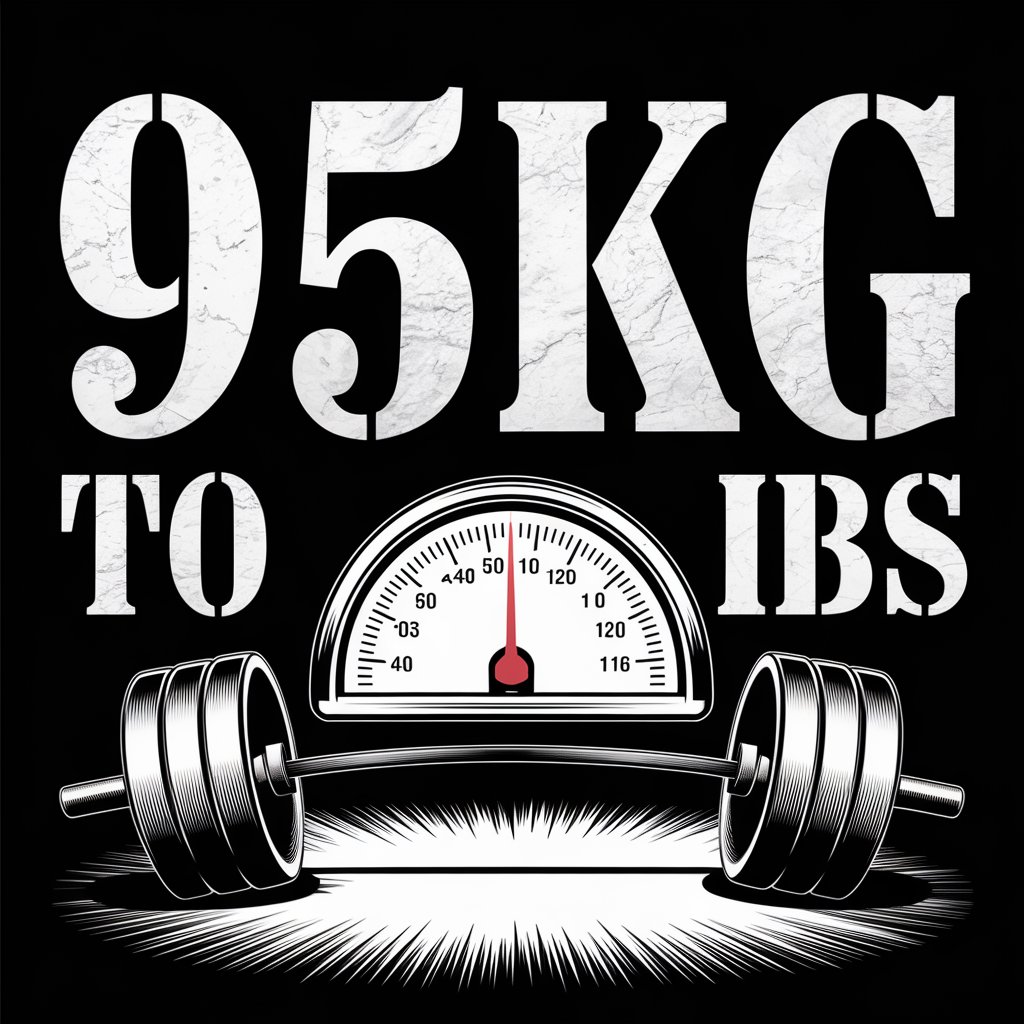About Weight Converter
95kg to lbs, The weight converter converts units of weight from one metric system to another. Weight is measured using a variety of systems, including the metric system, the imperial system, and the United States customary system. It aids in the precise conversion of weight measures, mainly when dealing with international units.
The metric system, which uses units of grams (g), kilograms (kg), and metric tonnes (t), is the most widely used measurement system globally. The imperial system is largely used in the United Kingdom, including units such as ounces (oz), pounds (lb), and stones (st). The US customary systems is used in the US and contains units such as ounces (oz), pounds (lb), and tons (t).
How many 95kg to lbs?
The answer is 0.45359237. We presume you’re converting between kilograms and pounds. You may get additional information about each measuring unit: Kg or Ibs The kilogram serves as the SI’s base unit of mass. One kilogram is equivalent to 2.2046226218488 Ibs. Keep in mind that rounding errors can occur, so always double-check your results. Use this article to discover how to convert kilos to pounds. Enter your own numbers into the form for converting the units!
Quick conversion chart from kilograms to pounds.
- One kilogram equals 2.20462 pounds, whereas five kilograms equals 11.02311 pounds.
- 10 kg converted to pounds equals 22.04623 pounds.
- 15 kg to lose is 33.06934 pounds.
- 20 kg to los equals 44.09245 pounds.
- Converting 25 kg to pounds equals 55.11557 pounds.
- 30 kg to lose equals 66.13868 pounds.
- 40 kg = 88.1849 lbs. 50 kg = 110.23113 lbs.
What is the formula for converting 95 kg to Ibs?
To convert 95kg to lbs, multiply 95 by 2.204623.
How much is 95 kg in ibs?
Answer: 95 kg equals 209.4392 pounds.
Definition of kilogram.
The kilogram (kg) is the SI unit for mass. It is the same mass as the kilogram’s worldwide prototype. This is a platinum-iridium international prototype stored at the International Office of Weights and Measures. One kilogram is roughly equivalent to 2.20462262184878 pounds.
History/origin: The term kilogram was taken from the French “kilogramme,” that in turn came from adding Greek vocabulary meaning “a thousand,” before the Late Latin term “gramma” indicating “a small weight.”
Despite the other SI base units, the kilogram is the only one with a SI prefix. SI depends on the meter-kilogram-second system of units, not the centimeter-gram-second system. This is due, at least in part, to inconsistencies and a lack of coherence that can occur when using centimeter-gram-second systems, such as those between electrostatic and electromagnetic units.
The kilogram was first established in 1794 as the mass of one liter of water at freezing point, but it was later revised due to the inaccurate and time-consuming nature of measuring the mass of a volume.
In 2019, a new definition of the kilogram was introduced, based on the constant developed by Planck, with changes to the definition of the second. Prior to its current definition, the kilogram was defined as the massk of an actual prototype.
a cylinder composed of a platinum-iridium alloy, which was an inaccurate measurement. This is demonstrated by the fact that the mass of the original kilogram prototype is now 50 micrograms less than that of other standard kilogram replicas.
Current usage: The kilogram, as a SI base unit, is used globally in nearly all fields and applications, with the exception of countries such as the United States, where the kilogram is used in many areas (such as science, industry, government, and the military), but not in everyday applications.

What is the definition of the pound?
The pound is the imperial and US customary unit of weight. One kilogram equals 2.20462262185 pounds.
One pound is divided into sixteen ounces (ounces).
History/origin: The pound descended from the Roman libra, and various definitions of the pound were used throughout history before the international avoirdupois pound, which is generally used today. The avoirdupois system was widely employed in the thirteenth century. It was upgraded to its present form in 1959. It is a system that was based on a physical standard pound and utilized a prototype weight. This prototype weight could be divided into 16 ounces, with three even divisors (8, 4, 2). This convenience may have contributed to the system’s popularity over rival systems at the time that used 10, 12, or 15 subdivisions.
Current usage: In the United States, the pound is commonly used as a unit of weight, particularly for body weight measurement. Many variants of the pound have existed in the United Kingdom (UK). While the UK now mainly utilizes the International System of Units, pounds are still used in specific settings, such as on packaged food labels. In the United Kingdom, both pounds and stones are commonly used to describe bodily weight, with a stone containing 14 pounds.
Understanding Kilograms versus Pounds
Overview of the 95kg to lbs Metric System (Kilograms). The metric system is a decimal-based measurement system that is widely used around the world. It is built on tenths, making unit conversions simple.
Kilograms (kg) are the fundamental unit of mass in the metric system. One kilogram equals one thousand grams. Most countries utilize the metric system, which is the international standard for scientific, medical, and daily measurements.
Kilograms are widely used in many nations for daily weight measurements, including body weight, food packaging, and scientific study.
The Imperial System (Pounds)
Overview The imperial system, often known as the British system, is widely utilized in the United States, the UK, and a few other countries. It is not decimal-based and requires distinct conversion factors for each unit.
Pounds (lbs) are the unit of weight in the imperial system. One pound is comparable to sixteen ounces. In areas where it is conventional, the imperial system is commonly used for everyday measurements such as human weight, food, and commercial products.
Pounds are the most often used weight measuring unit in the United States, covering personal weight, goods, and shipping.
Frequently Asked Questions (FAQs)
How can I convert pounds into kilograms?
95kg to lbs, To convert Ibs to kilograms, divide the mass by 2.205.
How can I convert milligrams into grams?
To convert milligrams to grams, multiply the mass by 1000.
How does one convert metric tons to grams?
When converting tons to grams, multiply the mass value by 1e+6.
How do you convert ounces into grams?
To convert ounces to grams, calculate the mass value by 28.35.
How do you convert weight measures from imperial to metric?
To convert imperial weight units to metric, use the subsequent conversion factors: 1 ounce equals 28.35 grams. One pound equals 0.4535 kilograms. One ton equals 907.185 kg.
